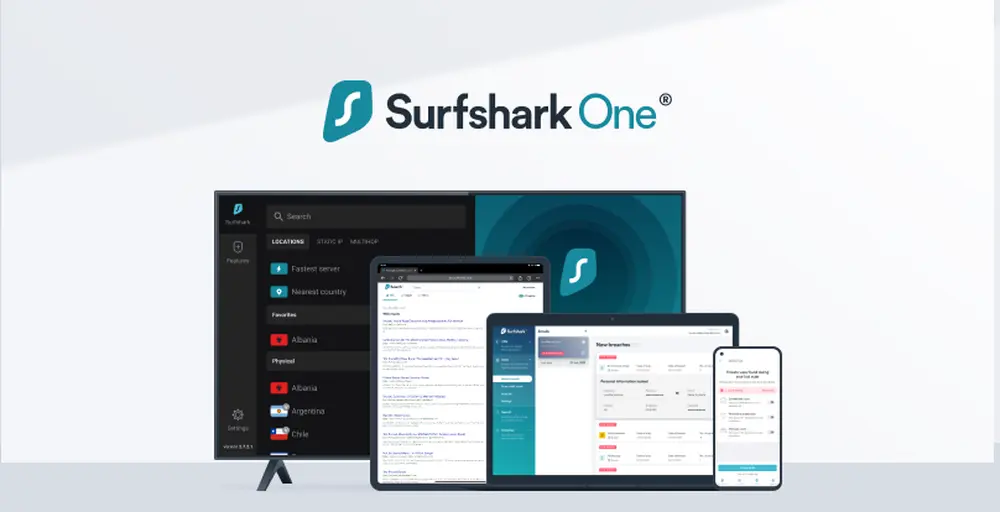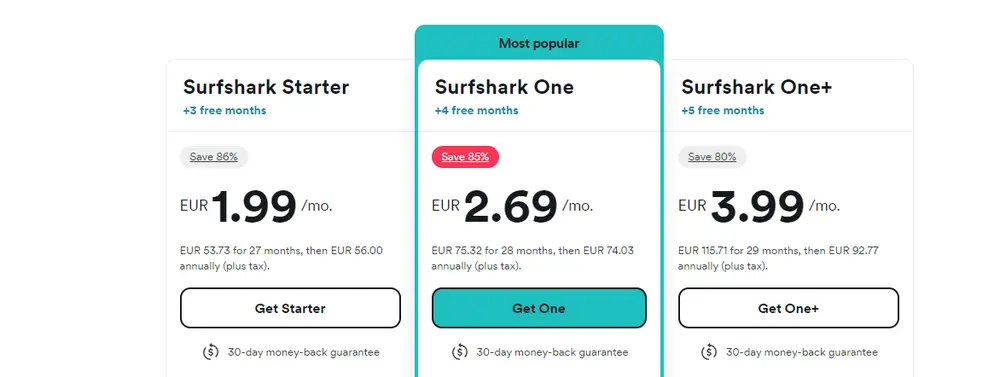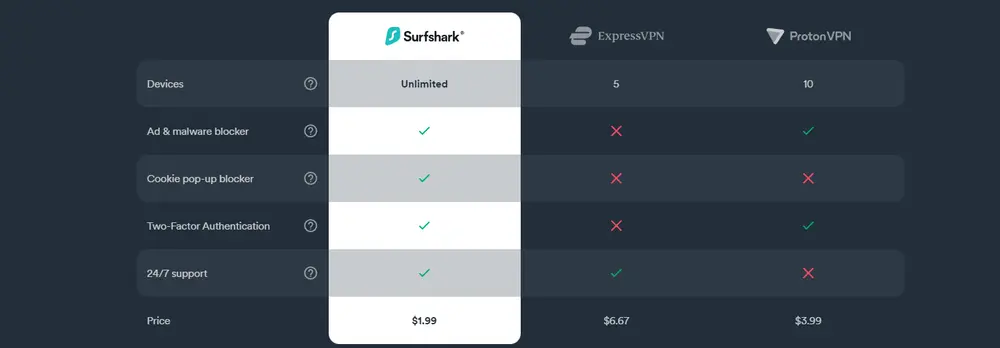SurfShark VPN Overview
Surfshark VPN distinguishes itself with some standout features, but it comes at a cost. We’ll explore its pricing, server options, and notable features in detail.
Table of Contents
- Surfshark VPN Overview
- Pricing and Plans
- Unlimited Simultaneous Connections
- Unique Features
- Pros and Cons
- Privacy and Security
- Performance and User Experience
- Conclusion
SurfShark VPN: Pricing and Plans
Surfshark VPN doesn’t shy away from being one of the more expensive options on the market. At $12.95 per month, it surpasses the average monthly cost of $9.80 among its competitors. However, the company attempts to sweeten the deal with discounts for long-term commitments. An annual plan starts at $47.88, renewing at $59.76, and a two-year plan costs $59.76 as well, maintaining the same renewal price. While the long-term plans offer savings, it’s advisable to start with a shorter subscription to ensure compatibility before committing.
Unlimited Simultaneous Connections
A notable highlight of Surfshark VPN is its generosity in allowing unlimited simultaneous connections. This is a rarity in the VPN landscape, as most providers cap connections at five. This flexibility makes Surfshark VPN a standout choice for users with multiple devices.
SurfShark VPN Unique Features
It sets itself apart with a range of unique features. The Bypasser tool facilitates split tunneling, allowing users to choose specific apps and websites to use the VPN. This feature streamlines the process of accessing sites that might block VPN connections.
Another distinctive feature is multi-hop connectivity, adding an extra layer of security by routing traffic through two VPN servers. While some competitors offer similar features, Surfshark VPN enhances this functionality by allowing users to create multi-hop connections between any two server locations.
Surfshark Nexus and IP Rotator – The company is actively working on Surfshark Nexus, a transformative network unification project. This initiative aims to seamlessly transition between VPN servers without disconnecting, providing uninterrupted service. Additionally, Surfshark Nexus introduces the IP Rotator feature, periodically assigning users a new IP address without disrupting the connection. The potential of these features positions Surfshark VPN at the forefront of innovation.
Pros and Cons
Pros
- Unlimited simultaneous connections.
- Unique features like Bypasser and multi-hop connectivity.
- Active development of Surfshark Nexus for seamless server transitions.
- IP Rotator feature for periodic IP address changes.
- Strict no-logs policy with third-party audits.
Privacy and Security
Logging Policy – Surfshark VPN asserts a strict no-logs policy, claiming not to log IP addresses, browsing history, bandwidth usage, or network traffic. However, the Privacy Policy raises some concerns as it mentions logging connection timestamps with a user ID, deleted 15 minutes after connection termination. While this is ostensibly to prevent abuse, clarification on this apparent contradiction is warranted.
Third-Party Audits – Surfshark VPN undergoes third-party audits to validate its privacy and security claims. Cure53 audited the browser extension in 2018, followed by an infrastructure and VPN configuration audit in 2021. In 2023, Deloitte confirmed compliance with the no-logs policy. While audits are imperfect, they contribute to building trust in the VPN service.
Ownership and Jurisdiction – Surfshark is owned by Surfshark BV, established in the Netherlands. The company merged with NordVPN in 2022 under the Netherlands-based holding company Cyberspace. Surfshark BV initially operated under British Virgin Islands law for consistency. A live Warrant Canary on its transparency report reinforces the commitment to user privacy.
Performance and User Experience
Server Network – Surfshark VPN boasts servers in 100 countries, providing extensive global coverage. Noteworthy is its presence in regions often overlooked by other providers, with 6 locations in Africa and 12 in South America. This diverse network increases the likelihood of finding a server close to the user’s location or travel destination.
Speed and Performance – Speed tests reveal mixed results for Surfshark VPN. While it excels in download speeds, reducing results by only 4.8%, upload speeds take a hit, decreasing by 61.2%. Latency also increases by 275.3%. These fluctuations may be attributed to server selection and the geographic distance from testing locations.
Cross-Platform Compatibility – it caters to a wide audience with dedicated apps for Windows, Android, iOS, macOS, Linux, and even Chrome OS. The user-friendly interface and feature-rich apps enhance the overall experience.
Conclusion
In conclusion, Surfshark VPN presents a compelling option for users prioritizing unlimited simultaneous connections and innovative features like Bypasser and multi-hop connectivity. While the pricing may deter some, the service’s commitment to privacy, robust server network, and ongoing development of Surfshark Nexus position it as a noteworthy player in the VPN landscape. As with any VPN, individual experiences may vary, and users are advised to conduct their assessments based on specific needs and preferences.

Authors Bio: Jonathan Mitchell is a tech enthusiast and experienced reviewer with a strong focus on technology, web hosting, and various other categories. With his extensive knowledge and expertise, he provides comprehensive and honest reviews on a wide range of tech products and services. From smartphones, smart home devices, consumer electronics, and web hosting platforms to online learning platforms, education, online music courses, online retailers, and marketing strategies, Jonathan covers a diverse range of topics. His goal is to simplify complex tech concepts and deliver unbiased recommendations, helping readers make informed decisions.








